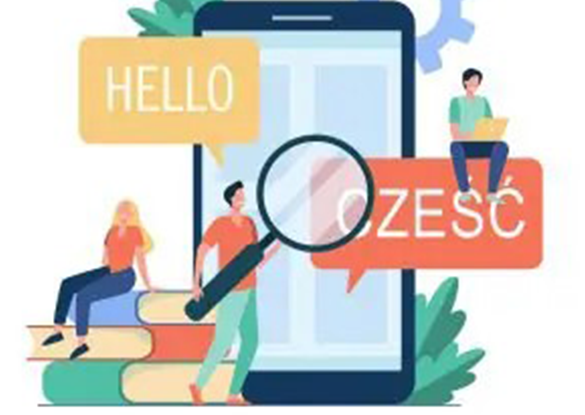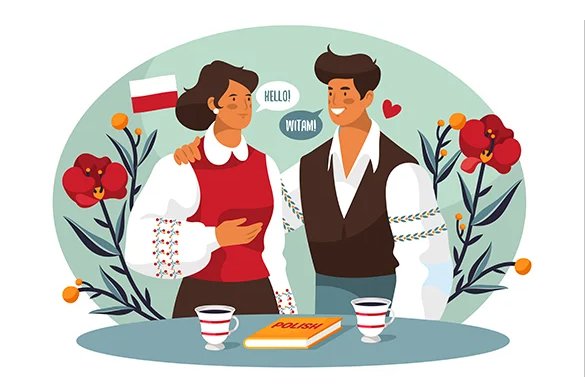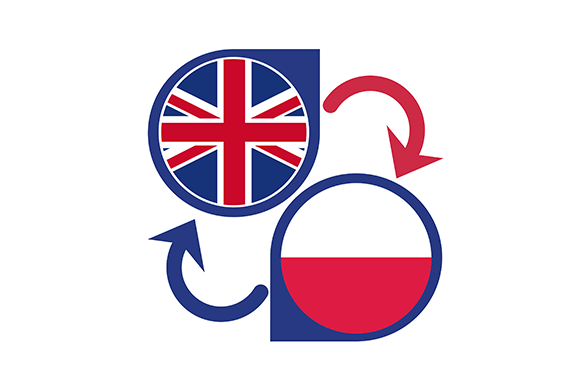Rosetta Translation provides a full range of Polish translation services to companies and individual clients in London and worldwide.

Rosetta provides a full range of certification services for all its Polish translations. We can provide a normal translator certificate, but we can provide a sworn translation or notarise or legalise your translations, depending simply on your exact requirements.
When contacting us, it is therefore best to be as specific as possible about your exact certification needs. If you are at all unsure about any of the details, do not hesitate to ask our experienced account managers, who will happily guide you through the process and make sure you get the exact service that you need for your purposes.
For a free instant quote, please fill in the form on this page, email us at quote@rosettatranslation or contact us at any of our local offices in London, Shanghai, New York, Paris or Luxembourg.
Rosetta Translation is a leading multi-sector Polish translation specialist. We have considerable depth of experience in a number of specialisations:
Legal translation:
Our experienced legal translators will turn any legal document into a faithful equivalent in the target language.
Financial translation:
We have considerable expertise in the translation of financial statements and other finance-related documents.
Technical translation:
Our regular technical translation clients value the consistently high quality of our technical manual translations and translation of other technical documentation.
Medical translation:
We translate the whole spectrum of medical translations and pharmaceutical translations, from medical reports to pharmaceutical trial reporting to medical device documentation.
We assign every translation to the most appropriate specialised team of highly qualified Polish translators, proofreaders and editors, thereby ensuring a consistent and excellent quality of Polish translation in each of these areas.
Combined with our use of translation technology and our extraordinary flexibility as regards client needs, this results in the professional and reliable Polish translation service that our regular customers expect and value.
We also provide Polish interpreting services in London and worldwide.

Rosetta Translation is one of very few translation agencies that have achieved the prestigious ISO 9001:2015 certification as well as the DIN EN 15038 norm, the only accreditation specifically designed for translation agencies. Our customers can therefore rest completely assured of the consistent and excellent quality of our Polish translations.
Our Polish Translations can be certified, notarised and legalised to meet your exact requirements.
We use experienced, native Polish translators for all our English-Polish translations, all of whom specialise in a number of different areas of translation to give the best possible results for our customers. Documents are proofread and formatted to suit each client’s individual needs, resulting in an excellent Polish translation.
Polish(język polski) is one of Europe’s most important languages. It is playing an increasingly significant role in European business markets and in the European Union. After Russian, it is the most widely spoken Slavonic language, with some 38 million native speakers and another eight million second-language speakers.


Whether your Polish-English translation assignment is complex and technical or more basic in style, Rosetta Translation always has experienced translators on hand to deliver a high quality translation, with expertise in a number of areas, from technical business jargon to medical terminology.
As an internationally aware company, we operate as worldwide a service for our English translation as we do for our other languages. This means that we can provide English in any of the many existing dialects, whether you need British English, American English, Australian English, even Jamaican English, we have the know-how and the expertise.
According to the UK 2011 census, Polish is the second most spoken language in England and Wales but interestingly, the majority of those speakers are native Polish or first-generation descendants of Polish citizens. The U.S. Foreign Services Institute is the branch of the US government charged with providing diplomatic staff with the necessary training before being assigned to postings abroad, and they have classed Polish in one of the highest categories for acquisition difficulty for native English speakers, much more so than French, Italian or Spanish, due to Polish’s “significant linguistic and/or cultural differences from English”. The lack of people with Polish as a second language is therefore not surprising. This is commonly credited to a large extent to its complicated grammar (and equally complicated gendering system), large alphabet as well as its complex pronunciation.
If Polish uses the Latin script, how then is its alphabet so difficult for English speakers? Well, Polish boasts 32 letters, compared to 26 in English, with an additional mix of two letter pairs that combine to correspond to one sound, known as a digraph. On top of that, there are diacritic signs (a sign, such as an accent, which when written above or below a letter indicates a difference in pronunciation from the same letter when unmarked or differently marked) which do not exist in English.
An interesting feature of Polish grammar that contributes to its difficulty is that the number used to denote how many there are of a certain thing, for example a noun, has to agree with the qualities of the noun itself. Those who speak Japanese, say, would understand this concept, however for those whose native language doesn’t do this, it will sound like gobbledygook. So, let’s talk about the number two in Polish, which has 17 different forms when we speak about counting things. So what exactly does this look like? Well…
dwa kubki two cups
dwoje dzieci two children
dwóch nauczycieli two teachers
You will see that the word for two changes with each of the nouns above, and it doesn’t stop there, it will also change depending on adjectives and also pronouns; this is how Polish manages to have 17 different ways to say the number two!
This might be why, then, that we see the number of people who speak Polish in the UK be dominated by those who learnt the language as a child, when language acquisition is much easier. Rosetta Translation works with the most experienced translators that understand the complexities of the Polish language when translating into or out of Polish, so that you can be confident the grammar is correct and reads fluently every time.
The length of a text can vary quite a bit between different languages. When we compare English and Polish, the same Polish text can be up to 20-30% longer than its English counterpart. This means that when translating materials into Polish that are space-dependent, such as posters or manual instructions with associated images, this must be taken into consideration. Our translators are adept at making sure the original meaning in the source text is faithfully translated into the target language, be that English or Polish, and will also be taking space limitations into consideration, so you can be sure that your document will be a faithful translation of the source whilst also having the best consideration made towards your space constraints. For documents where this is particularly important, we at Rosetta Translation can also offer DTP services, so you can be sure that your translation will come back looking just the way you want it to.






What is the UN French Language Day? On 20 March, we once again celebrate UN French Language Day, a global celebration of linguistic diversity and cultural exchange. Created by the United Nations in 2010, this day is to remind us …

